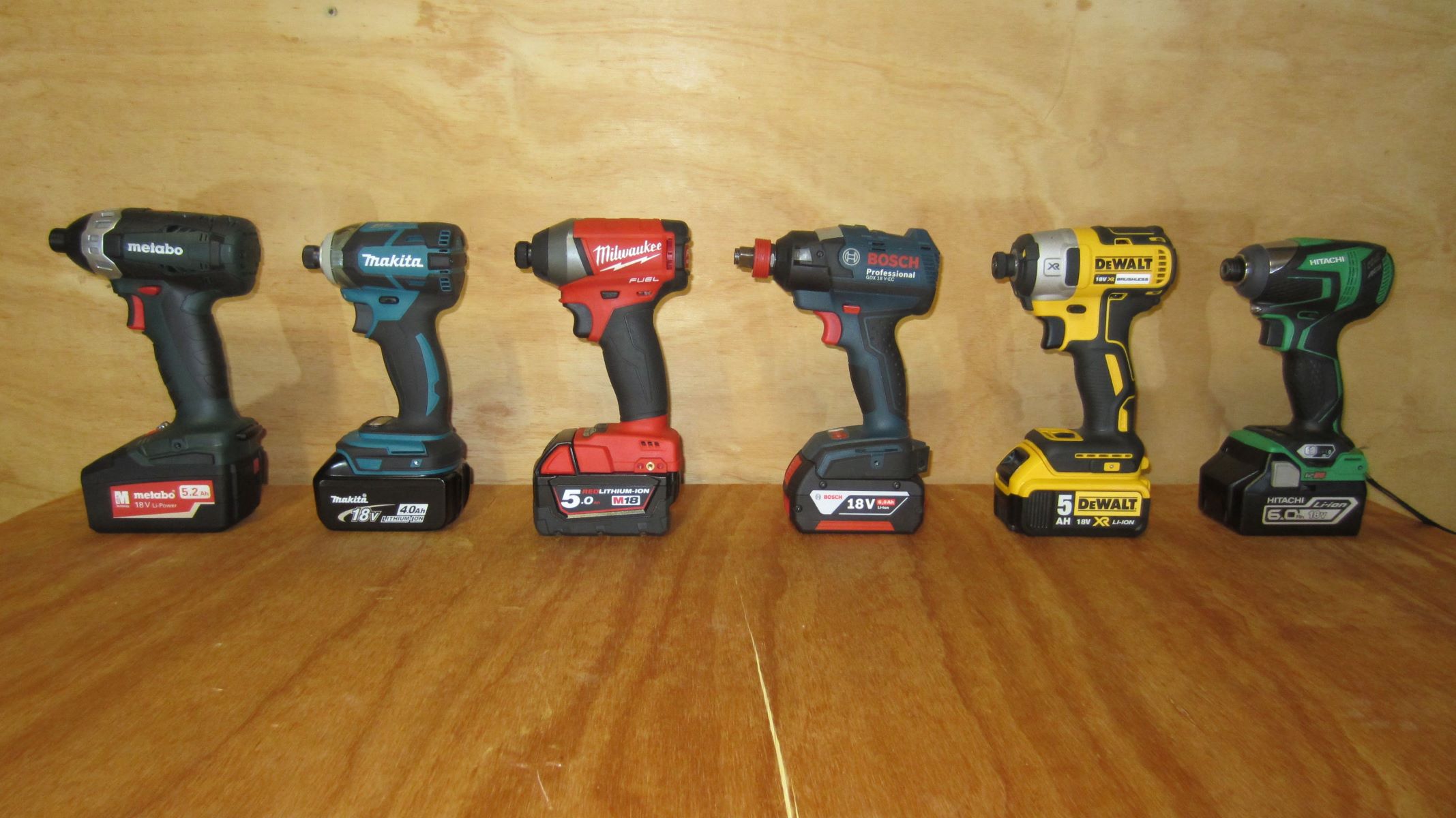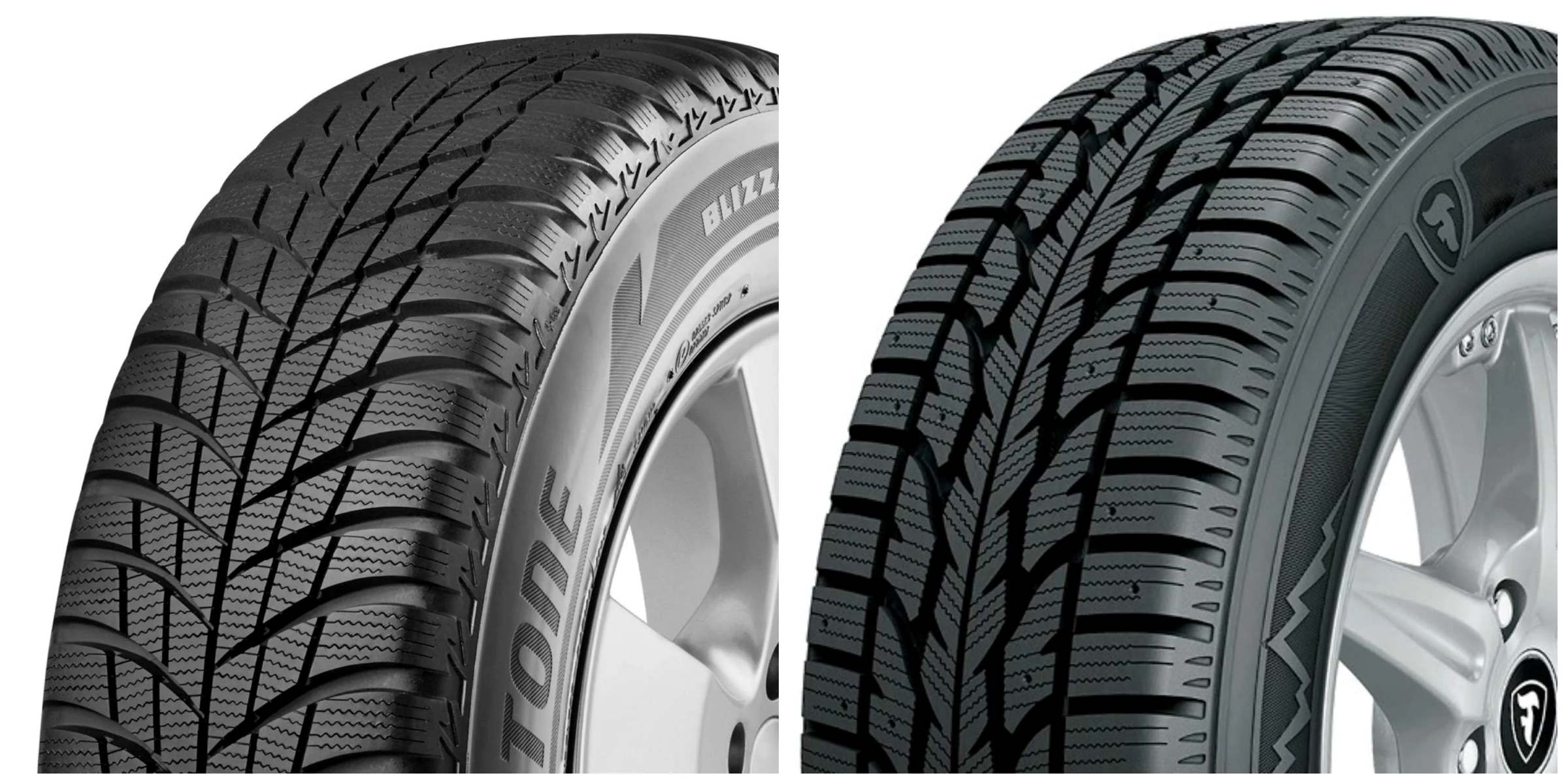Home>Business and Finance>The Ultimate Showdown: DeWalt Vs. Milwaukee Power Tools – Which Reigns Supreme?


Business and Finance
The Ultimate Showdown: DeWalt Vs. Milwaukee Power Tools – Which Reigns Supreme?
Published: January 23, 2024
Looking to invest in power tools for your business? Discover the ultimate comparison between DeWalt and Milwaukee to determine which brand is the best fit for your business and finance needs.
(Many of the links in this article redirect to a specific reviewed product. Your purchase of these products through affiliate links helps to generate commission for Regretless.com, at no extra cost. Learn more)
Table of Contents
Introduction
When it comes to power tools, two names stand out as titans in the industry: DeWalt and Milwaukee. These brands have earned a reputation for producing high-quality, reliable tools that cater to the needs of professionals and DIY enthusiasts alike. Whether you're a seasoned contractor or a hobbyist working on home improvement projects, the choice between DeWalt and Milwaukee power tools can be a daunting one. Both brands boast a rich history, a wide range of products, and a loyal following, making the decision a tough call for many.
In this comprehensive comparison, we will delve into the key factors that set these powerhouses apart. From their historical roots to their modern-day innovations, we will explore the nuances of DeWalt and Milwaukee power tools. By examining their product range, performance, durability, ergonomics, battery life, charging capabilities, and overall value, we aim to provide you with the insights needed to make an informed decision. So, buckle up and get ready for the ultimate showdown as we unravel the strengths and weaknesses of DeWalt and Milwaukee power tools. Let's dive into the nitty-gritty details and find out which brand truly reigns supreme in the realm of power tools.
History of DeWalt and Milwaukee Power Tools
DeWalt:
DeWalt has a rich history that dates back to the early 1920s when it was founded by Raymond E. DeWalt, the inventor of the radial arm saw. This invention revolutionized the woodworking industry, setting the stage for DeWalt's future success. In 1949, American Machine & Foundry Co., Inc. (AMF) acquired the company, further strengthening its position in the power tool market. Over the years, DeWalt continued to expand its product line, introducing innovative power tools designed for professionals and craftsmen.
Milwaukee:
Milwaukee, on the other hand, has a history rooted in innovation and engineering excellence. The brand was established in 1924 and quickly gained recognition for its exceptional durability and performance. Milwaukee's pioneering spirit led to the development of the first-ever portable, one-handed 1/4" capacity drill, setting a new standard in the industry. With a focus on delivering game-changing solutions, Milwaukee cemented its status as a leader in power tool technology.
Both DeWalt and Milwaukee have demonstrated a commitment to innovation and quality, earning the trust of tradespeople and DIY enthusiasts worldwide. Their enduring legacies and dedication to pushing the boundaries of power tool design have solidified their positions as industry powerhouses.
This historical overview sets the stage for a deeper exploration of how these brands have evolved and shaped the power tool landscape. Their rich heritage serves as a testament to their expertise and unwavering dedication to providing top-tier tools for a wide range of applications.
Product Range
DeWalt and Milwaukee both boast extensive product ranges that cater to the diverse needs of professionals and DIY enthusiasts. From power drills and impact drivers to saws, grinders, and specialty tools, both brands offer a comprehensive selection designed to tackle various tasks with precision and efficiency.
DeWalt's product line encompasses a wide array of cordless and corded power tools, each engineered to deliver optimal performance in demanding work environments. The brand's cordless tool range includes compact drill/drivers, impact wrenches, rotary hammers, and reciprocating saws, providing versatility and mobility on job sites. Additionally, DeWalt's corded tools, such as circular saws, angle grinders, and sanders, offer robust solutions for heavy-duty applications.
Milwaukee, known for its relentless commitment to innovation, offers a diverse range of power tools tailored to meet the evolving needs of professionals. The brand's FUEL™ line stands out with its advanced brushless motor technology, delivering unparalleled power and durability. From M18™ and M12™ cordless systems to corded solutions, Milwaukee's product range covers an extensive spectrum, including drills, impact wrenches, saws, and specialty tools designed for maximum productivity and performance.
Furthermore, both DeWalt and Milwaukee provide a variety of accessories and hand tools to complement their core power tool offerings. This comprehensive approach ensures that users can find everything they need to complete their projects efficiently, from cutting and fastening to grinding and woodworking.
In essence, the product ranges offered by DeWalt and Milwaukee reflect their commitment to addressing the diverse requirements of professionals across different trades and industries. Whether it's construction, woodworking, metalworking, or general maintenance, both brands strive to equip users with the tools they need to achieve exceptional results. The breadth and depth of their product offerings underscore their dedication to innovation and their understanding of the evolving demands of the modern workplace.
By examining the extensive product ranges of both brands, it becomes evident that DeWalt and Milwaukee have set a high standard for the power tool industry, consistently delivering a wide array of reliable, high-performance tools that cater to the ever-changing needs of their customer base.
Performance and Durability
When it comes to power tools, performance and durability are paramount considerations for professionals and DIY enthusiasts alike. Both DeWalt and Milwaukee have established themselves as frontrunners in this regard, consistently delivering tools that excel in performance and stand the test of time.
DeWalt's commitment to performance is evident in its use of advanced motor and battery technologies. The brand's brushless motor designs, found in many of its cordless tools, offer increased efficiency and power, resulting in superior performance across a wide range of applications. This translates to faster work progress and enhanced user experience. Additionally, DeWalt's XR series of tools, featuring extended runtime and durability, further underscores the brand's dedication to providing high-performance solutions for demanding tasks.
Milwaukee, renowned for its FUEL™ line, has redefined performance benchmarks with its brushless motor technology. This innovation delivers unmatched power and efficiency, allowing users to tackle challenging projects with confidence. The brand's REDLITHIUM™ battery technology complements its motors, providing extended runtimes and consistent power delivery. This combination of advanced motor and battery systems enhances the overall performance and longevity of Milwaukee's tools, making them a preferred choice for professionals seeking uncompromising performance.
In terms of durability, both DeWalt and Milwaukee have integrated robust construction and engineering into their tools. DeWalt's focus on creating tools that withstand tough job site conditions is evident in the rugged design of its cordless and corded offerings. The brand's attention to detail and use of high-quality materials result in tools that can endure heavy daily use, ensuring long-term reliability for users.
Similarly, Milwaukee's dedication to durability is showcased in the ruggedness of its tools, designed to withstand the rigors of professional work environments. The brand's emphasis on impact-resistant housings, reinforced components, and advanced sealing techniques contributes to the overall durability of its tools, instilling confidence in users who rely on their equipment to perform consistently in demanding settings.
In essence, both DeWalt and Milwaukee have set a high standard for performance and durability in the power tool industry. Their relentless pursuit of innovation and engineering excellence has resulted in tools that not only excel in performance but also exhibit exceptional durability, making them indispensable assets for professionals across various trades and industries.
Ergonomics and Design
Ergonomics and design play a pivotal role in shaping the user experience and overall usability of power tools. Both DeWalt and Milwaukee have invested substantial efforts in crafting tools that not only deliver exceptional performance but also prioritize user comfort and convenience through thoughtful design and ergonomic considerations.
DeWalt's commitment to ergonomic design is evident in the careful attention given to handle grips, weight distribution, and overall tool balance. The brand's cordless tools, such as drills and impact drivers, feature ergonomic handles with contoured designs, allowing for comfortable and secure grips during prolonged use. Additionally, DeWalt integrates features such as built-in LED work lights and belt hooks into its tool designs, enhancing user convenience and versatility on the job site. The brand's commitment to user-centric design ensures that professionals can work efficiently without compromising on comfort or maneuverability.
Milwaukee, known for its innovative approach to tool design, places a strong emphasis on user comfort and control. The brand's FUEL™ line incorporates ergonomic features, including soft-grip handles and strategically positioned controls, to minimize user fatigue and maximize handling precision. Furthermore, Milwaukee's focus on one-handed operation and tool balance enhances user maneuverability, particularly in tight spaces or overhead applications. The brand's attention to detail in design extends to the integration of advanced technologies, such as REDLINK PLUS™ Intelligence, which optimizes tool performance while safeguarding against overloads, ensuring a seamless and safe user experience.
In terms of overall design, both DeWalt and Milwaukee have prioritized durability and functionality without compromising on aesthetics. DeWalt's tools often feature a distinct yellow and black color scheme, representing the brand's identity and signaling robust construction. Milwaukee, on the other hand, is recognized for its signature red color, reflecting the brand's bold and dynamic approach to design. Beyond aesthetics, both brands incorporate durable materials and intuitive layouts into their tool designs, ensuring that users can rely on tools that are not only visually appealing but also built to withstand the demands of professional use.
In essence, the ergonomic considerations and design philosophies embraced by DeWalt and Milwaukee underscore their shared commitment to enhancing the user experience. By prioritizing user comfort, control, and durability, both brands have set a high standard for ergonomic excellence, ensuring that professionals can work with precision and confidence, even in the most challenging work environments.
Battery Life and Charging
In the realm of cordless power tools, battery life and charging capabilities are pivotal factors that directly impact productivity and efficiency on the job site. Both DeWalt and Milwaukee have made significant strides in advancing battery and charging technologies, aiming to provide users with extended runtimes, rapid recharging, and overall seamless operation.
DeWalt's cordless power tools are powered by their renowned XR Lithium-Ion battery platform, known for delivering exceptional runtime and durability. The brand's focus on maximizing battery life is evident in the integration of intelligent battery management systems, which optimize power usage and safeguard against overheating or overloading. This proactive approach not only extends the lifespan of the batteries but also ensures consistent performance throughout each charge cycle. Additionally, DeWalt offers a range of fast chargers designed to minimize downtime, allowing professionals to recharge their batteries swiftly and get back to work without prolonged interruptions.
On the other hand, Milwaukee's M18™ and M12™ cordless systems are revered for their REDLITHIUM™ battery technology, which sets a new standard for power and longevity. The brand's commitment to maximizing battery life is exemplified by the incorporation of advanced cell designs and intelligent monitoring systems, ensuring optimal energy utilization and prolonged runtime. Milwaukee's rapid chargers further complement their battery technology, enabling users to replenish their batteries swiftly, thereby minimizing idle time and enhancing overall productivity.
Both DeWalt and Milwaukee have recognized the significance of battery life and charging efficiency in empowering professionals to work with uninterrupted focus. By providing robust battery platforms and rapid charging solutions, these brands have addressed the demands of modern worksites, where downtime is a luxury that professionals cannot afford. Their dedication to enhancing battery performance and optimizing charging capabilities reflects their commitment to facilitating seamless and uninterrupted workflow for users across various trades and industries.
In essence, the battery life and charging capabilities offered by DeWalt and Milwaukee underscore their shared commitment to empowering professionals with reliable and efficient cordless power tools. By prioritizing extended runtimes and rapid recharging, both brands have elevated the user experience, ensuring that professionals can tackle demanding tasks with confidence and agility, regardless of the challenges they may encounter on the job site.
Price and Value
When evaluating power tools, the consideration of price and value is crucial for both professionals and DIY enthusiasts. The investment in quality tools should not only align with budgetary constraints but also deliver long-term value through performance, durability, and overall user experience. DeWalt and Milwaukee, as industry leaders, have positioned themselves as providers of high-quality tools, each offering a distinct balance of price and value.
DeWalt's product lineup encompasses a wide range of cordless and corded power tools, catering to the diverse needs of users across various trades and applications. The brand's pricing strategy reflects its commitment to delivering accessible yet high-performance tools. With a focus on durability and advanced features, DeWalt's tools are positioned as reliable assets that offer long-term value to professionals seeking tools that can withstand rigorous use. The brand's investment in research and development translates into tools that deliver consistent performance, making them a compelling choice for users seeking a balance between price and enduring value.
On the other hand, Milwaukee's offerings, particularly its FUEL™ line, are positioned at a slightly higher price point, reflecting the brand's emphasis on cutting-edge technology and uncompromising performance. While the initial investment may be higher, Milwaukee's tools are designed to deliver exceptional value through their advanced features, durability, and innovative capabilities. The brand's focus on pushing the boundaries of power tool technology underscores its commitment to providing users with tools that not only meet but exceed their expectations, resulting in long-term value that justifies the initial investment.
When comparing the price and value propositions of DeWalt and Milwaukee, it's essential to consider the long-term benefits that stem from the initial investment. Both brands offer tools that are engineered to withstand the demands of professional use, ensuring that users receive lasting value from their purchases. While DeWalt's pricing may appeal to a broader audience seeking reliable and cost-effective solutions, Milwaukee's higher price point reflects the brand's dedication to innovation and uncompromising performance, appealing to professionals who prioritize cutting-edge technology and long-term value.
In essence, the price and value considerations for DeWalt and Milwaukee power tools extend beyond the initial cost, encompassing the durability, performance, and overall user experience that these brands deliver. By understanding the nuanced balance between price and long-term value, professionals and DIY enthusiasts can make informed decisions that align with their specific needs and expectations, ensuring that their investment in power tools yields enduring benefits and enhances their capabilities in the workshop or on the job site.
Conclusion
In the ultimate showdown between DeWalt and Milwaukee power tools, it becomes evident that both brands have carved out formidable positions in the industry, each offering a unique blend of innovation, performance, and reliability. The rich historical legacies of DeWalt and Milwaukee reflect their unwavering commitment to engineering excellence and customer satisfaction. From their early pioneering inventions to their modern-day advancements, both brands have continuously raised the bar for power tool technology, shaping the way professionals and DIY enthusiasts approach their projects.
The product range offered by DeWalt and Milwaukee showcases the depth of their understanding of the diverse needs of users across various trades and industries. Whether it's construction, woodworking, metalworking, or general maintenance, both brands have curated comprehensive selections of tools and accessories, ensuring that users can find the perfect solutions to meet their specific requirements. This breadth of offerings underscores their dedication to addressing the evolving demands of the modern workplace, empowering users to work with precision and efficiency.
Performance and durability stand as hallmarks of both DeWalt and Milwaukee power tools. The integration of advanced motor and battery technologies has resulted in tools that not only deliver exceptional performance but also exhibit remarkable longevity, withstanding the rigors of professional use. The ergonomic design philosophies embraced by both brands further enhance the user experience, prioritizing comfort, control, and maneuverability, ultimately contributing to the seamless execution of tasks in demanding work environments.
Battery life and charging capabilities have been pivotal focal points for DeWalt and Milwaukee, with both brands investing in robust battery platforms and rapid charging solutions. By prioritizing extended runtimes and efficient recharging, these brands have addressed the demands of modern worksites, where uninterrupted workflow is essential for meeting project deadlines and maximizing productivity.
The consideration of price and value underscores the commitment of both DeWalt and Milwaukee to providing accessible yet high-quality tools that deliver enduring value to users. While DeWalt's pricing strategy caters to those seeking reliable and cost-effective solutions, Milwaukee's emphasis on cutting-edge technology and uncompromising performance justifies its slightly higher price point, appealing to professionals who prioritize long-term value and innovation.
In conclusion, the showdown between DeWalt and Milwaukee power tools reveals that both brands have set a high standard for excellence in the power tool industry. Their legacies, product offerings, performance, durability, ergonomic design, battery capabilities, and value propositions collectively demonstrate their dedication to empowering professionals and DIY enthusiasts with tools that inspire confidence, enhance productivity, and stand the test of time. Whether it's the iconic yellow and black of DeWalt or the bold red of Milwaukee, both brands have left an indelible mark on the industry, shaping the way we approach projects and reaffirming their status as leaders in the realm of power tools.













